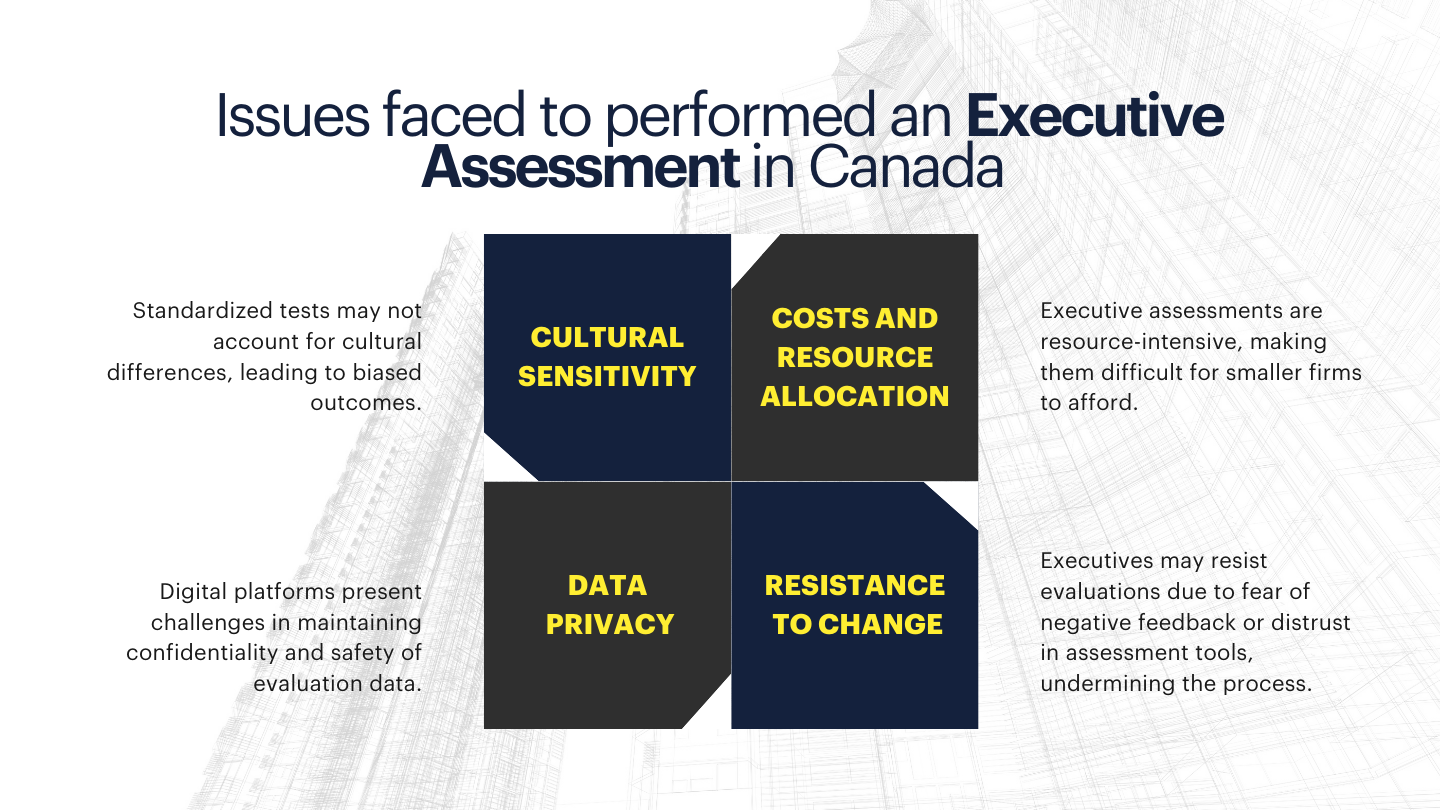Executive assessment is an integral process for organizations seeking to identify, assess and nurture their leadership potential. Organizations have been able to gain traction with this practice in Canada due to the dynamic nature of the business landscape that requires alignment of leadership abilities with strategic goals.
This article gives a broad overview of the executive assessment landscape in Canada, focusing on the main quagmires, chances, and insights that can be made useful for organizations willing to optimize their leadership evaluation processes.
What Does the Landscape Look Like for Executive Assessment in Canada Today?
In Canada, executive assessment is increasingly being seen as a key part of talent management and succession planning. A recent survey by the conference board of Canada showed that 68% of companies consider assessing their leaders as essential in fulfilling their business objectives. Sectors like finance, healthcare and technology especially require good leadership more than any other industry.
The typical executive assessments encompass psychometric testing combined with structured interviews, 360-degree feedback surveys and performance simulations among other things. They help businesses understand what skills each senior person has got along with his or her personal traits and potentiality. Additionally, digital platforms have come into play making the process more accessible and scalable regardless of company size.
Issues faced to performed an Executive Assessment in Canada

- Cultural Sensitivity: Inclusion means tests must be culturally sensitive reflecting cultural differences; thus standardized exams may not cover all these issues hence lead to biased outcomes.
- Data Privacy: The rise in use of digital platforms presents challenges concerning confidentiality and safety when it comes to handling evaluation data. Thus companies need to work within strict privacy rules so as not to expose any speculated information.
- Costs And Resource Allocation: Full-fledged executive assessments are usually resource-demanding. Particularly smaller firms tend to find it difficult meeting these costs related to such assessments.
- Resistance To Change: In some cases, executives may oppose the evaluation process because they fear receiving negative feedback about themselves or do not believe in particular assessment tools. This form of resistance undermines the purpose of any assessment.
What opportunities does Executive Assessment create for your company?
Nevertheless, there are ample opportunities for organizations to strengthen their executive assessment activities:
- Integration with Leadership Development: Consequently, it is possible to design personalized growth plans for executives by combining their assessment results with targeted leadership development programs. This will help bridge specific skill gaps and improve overall leadership effectiveness.
- Advanced Analytics: Moreover, greater insights into a leader’s potential and performance can be derived by leveraging big data and advanced analytics. For instance, through predictive analytics one can identify future leadership needs and trends.
- Diversity and Inclusion: Companies should consider assessments that focus on diversity and inclusion as this will help them develop more equitable leaders. It also enhances decision making which is in line with modern progressive companies.
- Continuous Feedback: A switch from periodic assessments to continuous feedback model can make the leadership evaluation process more dynamic and responsive. This is what agile methodologies have been gradually transforming various organizations into; this being an approach consistent with such tendencies.
As it is known, the executive assessment in Canada has developed parallel with global business environment. Of particular importance are the shift toward data driven decision making and focus on cultural competency. In order to benefit maximally from executive assessments, organizations need to:
- Customization: Develop assessment tools that consider peculiarities of context and culture within which they are applied because off-the-shelf solutions may not yield desired leadership insights.
- Transparency and Communication: Create a transparent atmosphere regarding how assessments are conducted. To include all stakeholders including those under evaluation, clearly explain why executives are assessed, how it is done as well as its advantages.
- Ethical Considerations: Ensure that assessments are conducted ethically with the main aim being fairness, transparency and privacy.
- Investment in Development: Use the output of an appraisal process for comprehensive leadership development programs. Investing in current and future leaders can have long term benefits to the organization.
Executive assessment in Canada is becoming more important towards success of organizations. With good navigation through challenges and opportunities one can ensure that their leadership teams will drive future growth and innovation. The key lies in adopting a holistic, data-driven, inclusive approach to leadership evaluation. Click here to get in contact with us.









